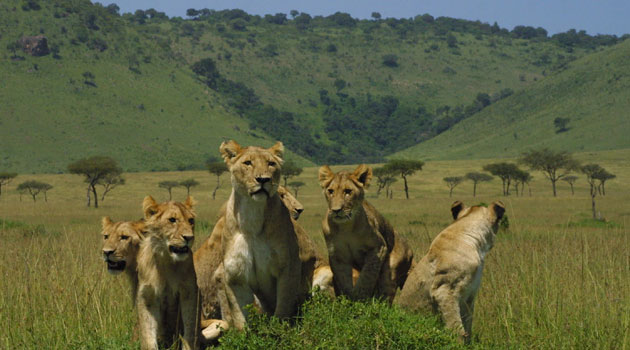
The call for a multi-sectoral approach to address human-wildlife conflict comes at a time when lions and hyenas are facing extinction. In 2016, for instance, studies indicated Kenya lost about 100 lions annually/KWS
NAIROBI, Kenya, Oct 30 – A two-day wildlife carnivore got underway in Nairobi on Wednesday with the call for joint efforts to address rising cases of human-wildlife conflict.
Speaking during the thirteenth annual carnivore conference Kenya Wildlife Service (KWS) Director General John Waweru said as a result of this, the number of carnivores especially Hyenas have drastically reduced.
He underscored the need for a long-lasting solution to preserve the endangered species.
“This year’s theme resonates to the current situation of our landscapes due to high human population and sedentary lifestyle towards nomadic communities and high demand of modern infrastructure,” Waweru said.
His sentiments come at a time when lions and hyenas are facing extinction.
In 2016, for instance, studies indicated Kenya lost about 100 lions annually.
“All involved parties should continue to contribute the development to adaption mechanisms to allow the coexistence to combat the over increasing human carnivore conflict,” KWS DG said.

Speaking during the thirteenth annual carnivore conference Kenya Wildlife Service (KWS) Director General John Waweru (pictured) said as a result of this, the number of carnivores especially Hyenas have drastically reduced/KWS
Scientific research has attributed human-wildlife conflict to growing human populations which overlap with established wildlife territory, straining the natural resource as a result leading to encroachment of wildlife areas by humans.
The conflict takes many forms ranging from loss of life or injury to humans, and animals both wild and domesticated, to competition for scarce resources to loss and degradation of habitat.
World Wide Fund for Nature, an international non-governmental organization working on wilderness preservation, and the reduction of human impact on the environment, has recommended conflict management strategies which often include lethal control, translocation, regulation of population size and preservation of endangered species.
Other management approaches encourage the use of scientific research for better management outcomes, such as behavior modification and reducing interaction.
As human-wildlife conflicts inflict direct, indirect and opportunity costs, the mitigation of human-wildlife conflict is an important issue in the management of biodiversity and protected areas, WWF underscored.
Other mitigating strategies to human-wildlife conflict include electric fencing, land use planning, community-based natural resource management, compensation and ecotourism wildlife friendly products.
KWS noted it had taken the responsibility to create awareness and educate host communities on the importance and need to protect wild animals to avoid situations that will lead to extinction.









































